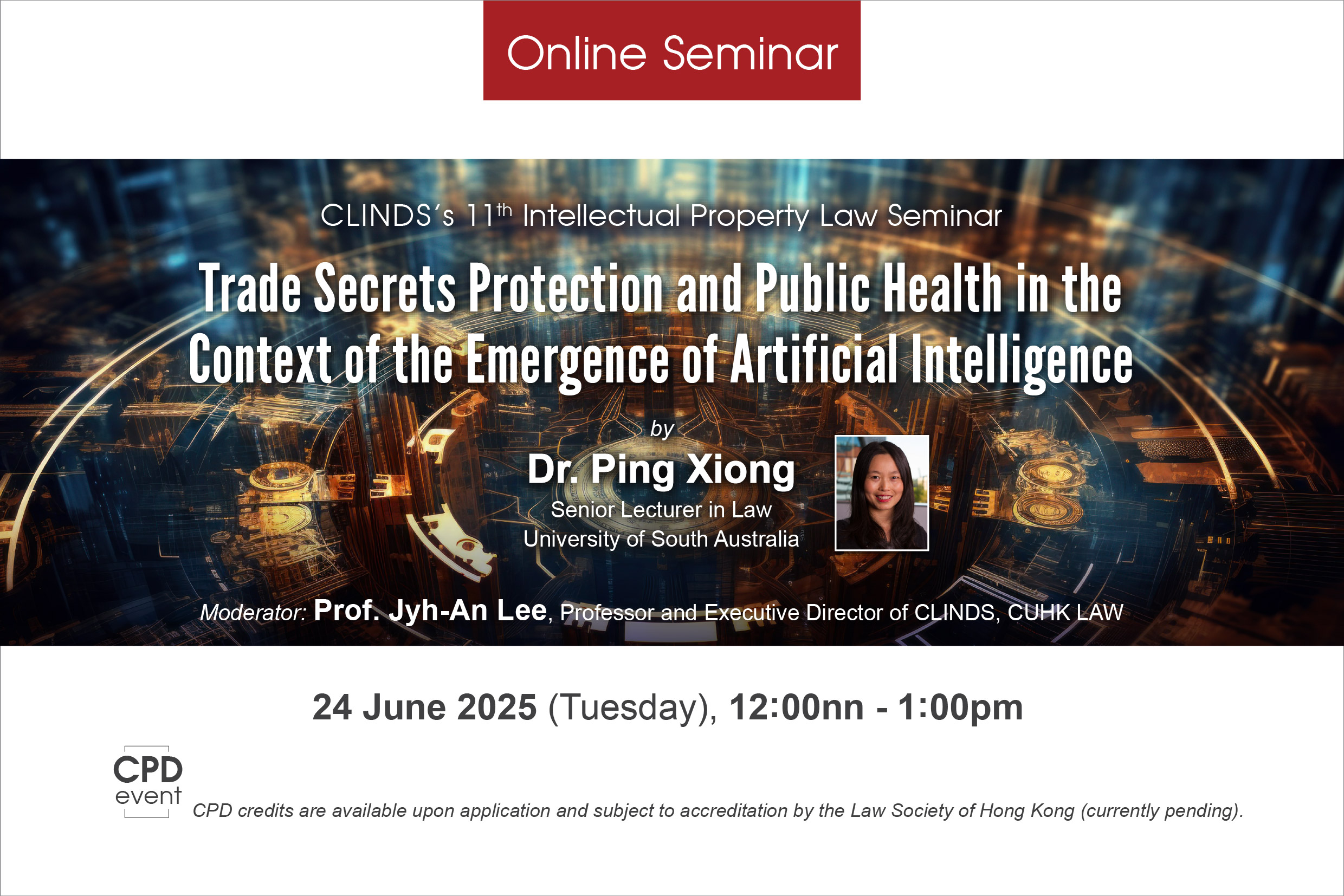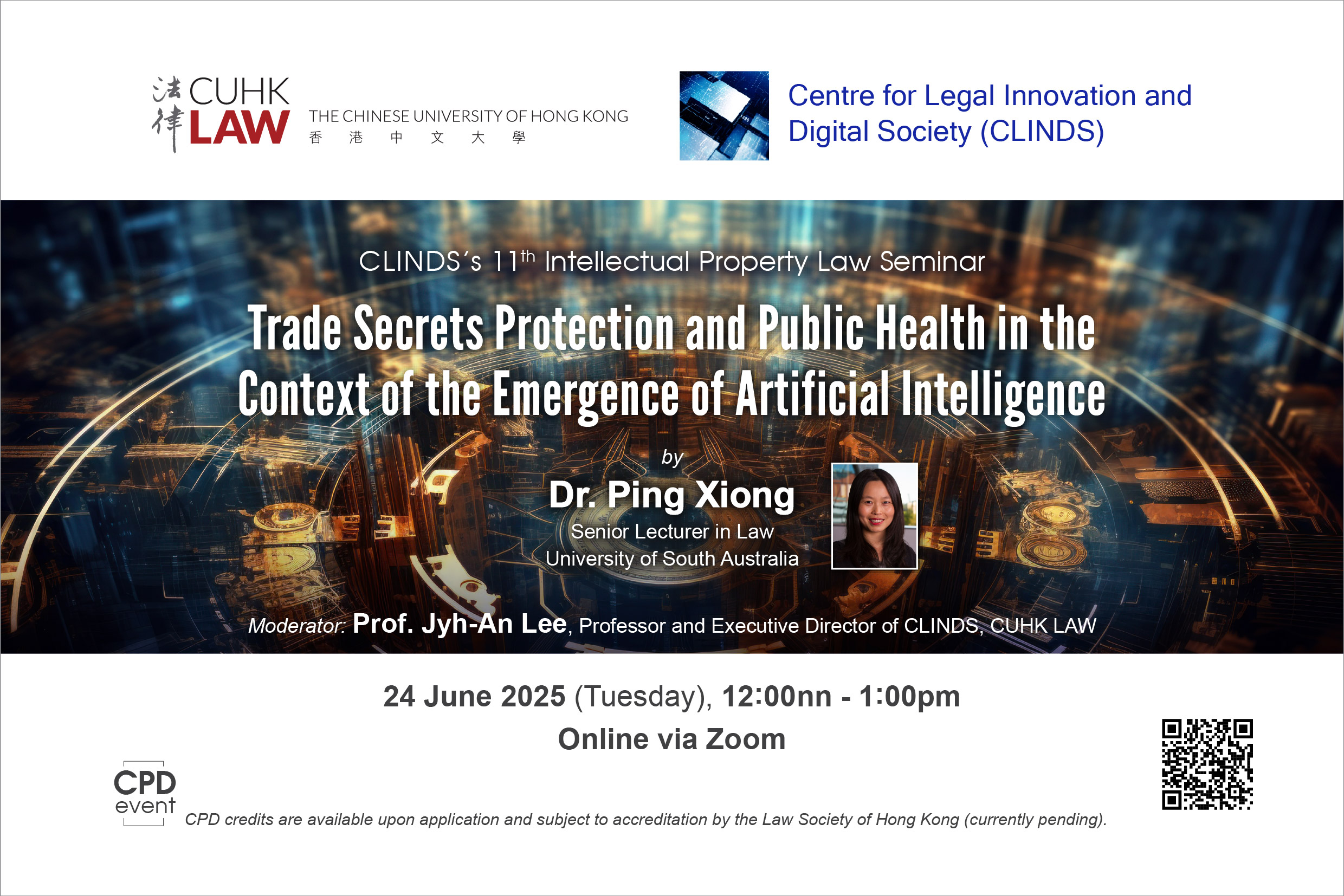This presentation argues that a reflexive legal approach to understanding trade secrets law and artificial intelligence law is a pragmatic response to the challenges posed to public health in the context of emergence of AI.
As AI continues to transform sectors including healthcare, its applications—ranging from diagnosis and clinical care to drug development, disease surveillance, outbreak response, and health systems management—are becoming increasingly central to public health strategies.
Transparency is critical to ensuring accountability and trust in public health, and it is also a widely endorsed ethical principle in AI governance. Achieving transparency in AI systems involves enhancing explainability and interpretability—such as through the disclosure of source code, data, model development processes, decision-making pathways, and thorough documentation prior to deployment.
This demand for transparency may conflict with trade secrets law, which protects confidential business information that holds economic value and is subject to reasonable measures to maintain its secrecy. In the AI domain, proprietary algorithms, training data, and development methods may all qualify as trade secrets. This tension between the public’s need for transparency and the private sector’s interest in maintaining secrecy underscores the complexity of governing AI in health-related applications.
The intersection of artificial intelligence (AI), trade secrets, and public health presents complex challenges that underscores the understanding of trade secrets protection and public health concern in the context of AI’s emergence. To navigate this intersection, the presentation draws on the concept of reflexive law, which emphasises self-regulation, stakeholder participation, flexibility, and the creation of legal frameworks that enable industries to develop and enforce their own standards. Reflexive law avoids rigid mandates, instead encouraging adaptive, context-sensitive norms that evolve alongside technological and social developments. By applying this framework, the presentation explores how the legal system can support both trade secret protection and the public health imperative for transparency in AI, ultimately proposing a balanced, participatory, and adaptable regulatory approach.
About the Speaker:
Dr. Ping Xiong is a Senior Lecturer in Law at the University of South Australia, which will transition to Adelaide University in 2026. Her primary research interests lie in international commercial law, with a particular emphasis on intellectual property policy within the context of international trade. She explores the implications of these policies for free trade agreements and international human rights frameworks.
Before joining the University of South Australia, Dr. Xiong held an academic position at Victoria University of Wellington. Her research also includes comparative legal analysis, especially regarding the Chinese legal system and its intersection with international legal standards. This encompasses Chinese trade secrets law and the legal, trade, and investment challenges faced by Chinese enterprises operating abroad.
Dr. Xiong has published extensively, including a monograph, book chapters, and numerous peer-reviewed journal articles. She holds a PhD in Law from Victoria University of Wellington, an LLM from the China University of Political Science and Law, and a BA from Beijing Foreign Studies University.
*CPD credits are available upon application and subject to accreditation by the Law Society of Hong Kong (currently pending).


0 Comments